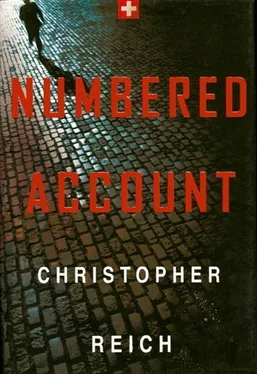Through the darkening haze, Mevlevi could make out the slums, the skyscrapers, the factories, and the freeways of a city bordering the sea, five miles to the southwest. Few neighborhoods were without damage, none fully rebuilt—this, years after the real fighting had ended. He smiled while trying to count the trails of smoke drifting into the evening sky. It was his way of measuring the city’s slow return to civilization. As long as her residents cooked their suppers over an open fire, squatting in the ruins of bombed-out side streets, he would feel safe and at ease. He stopped counting at fourteen, hampered by the failing light. Yesterday evening, he had spotted twenty-four separate plumes. If ever he were to count fewer than ten, he would have to consider finding a new home.
The Pearl of the Levant was still besieged. Make no mistake. Taking the place of mortars and gunfire were incompetence and lethargy. Water was spotty and power available only six hours a day. Three militias patrolled the streets, and two mayors governed her people. And for this the people crowed like proud parents that their city was reborn. A measure of congratulations he would grant them. Since the billionaire had purchased the reins of power, the country had shifted into first gear. The Hotel St. Georges had reopened her doors. A freeway linking the Christian east and Muslim west sides of the city was practically complete. Flights from major European cities had resumed. And the city’s favorite restaurants prospered.
Enterprises of a sufficient scale were not averse to providing the prime minister and his cronies an advisory fee of five percent of their revenues to ensure continued prosperity. When the prime minister briefly resigned, and the currency tumbled, it was rumored that only a mild increase in royalty—to seven percent—had secured his return to office. The P.M. was not a greedy man.
Beirut. She was the world’s whore and he loved her.
Mevlevi held his breath and watched as the sun gave a final bow between a parted curtain of orange cloud and disappeared for the night. The sea grew frothy with the heat of the falling star, but he knew this to be an illusion played on his aging eyes by sunlight, water, and distance. The sun, the sea, and the stars: nothing else inspired in him such awe and majesty. Perhaps in a former life, he had been a mariner, a companion to the greatest of Islamic adventurers, Ibn Batutah. In this life, though, another destiny was promised him. As the agent of the Prophet, he would lead the resurgence of his people and give back to them what was rightfully theirs.
This he knew in his heart.
* * *
Later, Ali Mevlevi sat behind his wooden desk studying a map of southern Lebanon and Israel. The map was only a month old, yet it was soft with wear, its creases gray from countless foldings. His eyes found Beirut and the hills where his own compound stood northeast of the city, then moved south across the border. He studied a dozen landmarks, cities and towns, before affixing his eyes to a small dot in the occupied territory of the West Bank. Ariel. A settlement of fifteen thousand Orthodox Jews. Squatters on land that did not belong to them. The town had been built out of the desert. Its nearest neighbor was ten miles in any direction. He opened his desk and found a slim compass. He centered the compass on the settlement, then drew a small circle one inch in diameter around it. “Ariel,” he pronounced grimly, then shook his head. He had decided.
Mevlevi folded the map carefully and placed it in his desk. He lifted the telephone and dialed a two-digit extension. A moment later, he said softly, “Joseph, come immediately to my study. Bring the traitor and my pistol. And summon Lina. It would be a shame to waste such an instructive event.”
The sharp cadence of a military footstep sounded from afar and grew nearer.
Mevlevi rose from his desk and walked to the entrance to his study. “And so, my friend,” he announced loudly enough to be heard across the great hall. “Come now. I am anxious for news of the day.”
A compact man wearing fresh olive drab utilities walked briskly across the foyer. He did not speak until he stood at attention four feet from his master.
“Good evening, Al-Mevlevi,” said Joseph, giving a crisp salute. “I am grateful for the opportunity to debrief you on the day’s activities.”
Mevlevi pulled the uniformed man to his chest and kissed him on each cheek. “You are my eyes and ears. You know how I depend on you. Please begin.”
Joseph began his recitation with a summary of ongoing security measures. Three-man patrols had been sent out at fifteen-minute intervals throughout the day to survey the compound’s perimeter. A scout followed each. No activity was reported. The height of the fences on the northernmost boundary of the compound was to be increased. However, the work crew did not arrive as scheduled. Christians, no doubt.
Ali Mevlevi listened attentively while appraising his chief of internal security. He admired the stiff cast of his shoulders and his formal posture. How well they matched the man’s stern appearance: his black hair shorn in a crew cut, his dark face covered with an even darker stubble, and his sad eyes. The eyes of his people.
He had found Joseph in Mieh-Mieh, as he found all his men.
Joseph had been in charge of the labor pool for the southern division of the refugee camp that lay twenty miles southeast of Beirut, a bloody stain on Israel’s northern doormat. Fifteen years after the Jews’ invasion, the camp still stood, even thrived. Thousands of Palestinians crowded the camp’s narrow alleyways, fighting daily over meager rations and squalid quarters. A job that creased a man’s hands and crooked his back was the camp’s most valued commodity. Cutting slabs of concrete under a merciless sun for ten hours brought two American dollars, enough to purchase a loaf of bread, three strips of lamb, and two cigarettes. Filling craters dug by countless mortars and car bombs, a twelve-hour shift spent under constant threat of hostile fire, brought the princely sum of four dollars. Two men were killed each week while repairing the city’s roads. Two hundred clamored to take their places.
Joseph had been brought to Mevlevi’s attention by a godless man, a thorny Syrian, Abu Abu by name, slaver by trade. Abu Abu had a sharp and discerning eye for the ruthless and cunning among the camp’s inhabitants. Most refugees were arrogant; many were strong. Few were intelligent. Fewer still, clever. At the top of this pile of refuse sat Joseph.
“He is mean as a cobra, yet wise as an owl,” said Abu Abu, before telling with glee of the last aspirant to Joseph’s position. Eyes gouged out, thumbs severed, and tongue spit into a neighbor’s cooking pot, the interloper spent his every day seated on an immaculate Syrian quilt, ten steps from the entrance to Joseph’s tent.
“This one is special,” whispered Abu Abu. “He has pride.”
Joseph had been polite in his refusal to leave, but Mevlevi had convinced him. It had taken time, and, in truth, he had revealed more of his plans than he had thought prudent. He spoke of a new praetorian guard; this time they, not the Romans, would be conquerors. He spoke of a new Jerusalem returned to its sole and rightful possessors, and of a world where devotion to God came first, and to man, second.
Finally, Joseph agreed to join him.
“Were our esteemed instructors able to keep to their course plan?” Mevlevi demanded, after Joseph had completed his summary. “We cannot afford to lose any more days.”
“Yes, Al-Mevlevi. All instruction specified for day fifty-seven was carried out. Sergeant Rodenko instructed the men on the proper use of Katyusha rockets in the morning. Emphasis was placed on rapid setup, firing, and deconstruction of the base firing units. So far we have received twenty-one firing platforms. Each assault squadron was able to have a go at it. Unfortunately we were unable to fire live ammunition. Rodenko insisted the heat signature of the rockets would be visible to satellites overhead.”
Читать дальше












